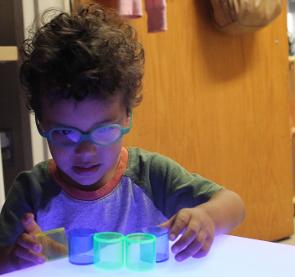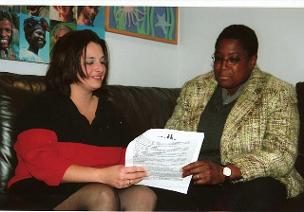CURRICULUM

Our Curriculum
In line with our philosophy and goals, TCC has implemented the Creative Curriculum program. "The Creative Curriculum incorporates the latest research and best practices, taking the needs of every type of learner into account." Accordingly, activity areas are intentionally designed in the classroom’s learning environment, offering children more choice and encouraging them to take a hands-on approach to learning, discovering, and problem-solving. This empowers the child to become a creative, confident thinker. The children's social interactions are guided so they learn to respect people both in and out of the classroom setting. The teacher's role is to motivate, stimulate thinking, and recognize the individual learning styles and social and emotional needs of each child.
We also incorporate teacher-directed activities in the classrooms and maintain a structured program that offers children a predictable routine. This gives teachers a better opportunity to make observations, thus helping them complete assessments and plan the curriculum based on the children's overall development.
The Creative Curriculum program’s foundational principles include:
- The importance of play (making learning fun)
- Children learning from each other (better social skills, better achievement in school)
- The importance of responsive and nurturing relationships between adults and children (the teacher’s role is vital in connecting content to learning)
- Partnerships with families are essential
- Assessment and curriculum depend on each other and must be linked
Assessments/Progress Reports
We complete assessments every three months for our infants and three times a year for our toddlers and preschoolers. They are used as a tool to track each child's individual progress and to assist the staff in determining where the children are as a group. In our assessments, the Center uses the Massachusetts Standards and Learning for Infants. For our toddlers and preschoolers, we use the Teaching Strategies Gold system, which is based on research into how children learn and the child development theories of Piaget, Maslow, Erkson, and Smilansky. Fully aligned with the Massachusetts Common Core Early Learning standards, there are 21 toddler goals and objectives and 50 preschool goals and objectives divided into four areas of development: social/emotional, physical, cognitive, and language.
Assessments are used to plan the curriculum and to support each child’s individual development. A copy of every assessment is sent home, and parent conferences are held twice a year to share the child's developmental landmarks and growth over the year. Individual portfolios are maintained for every child.

